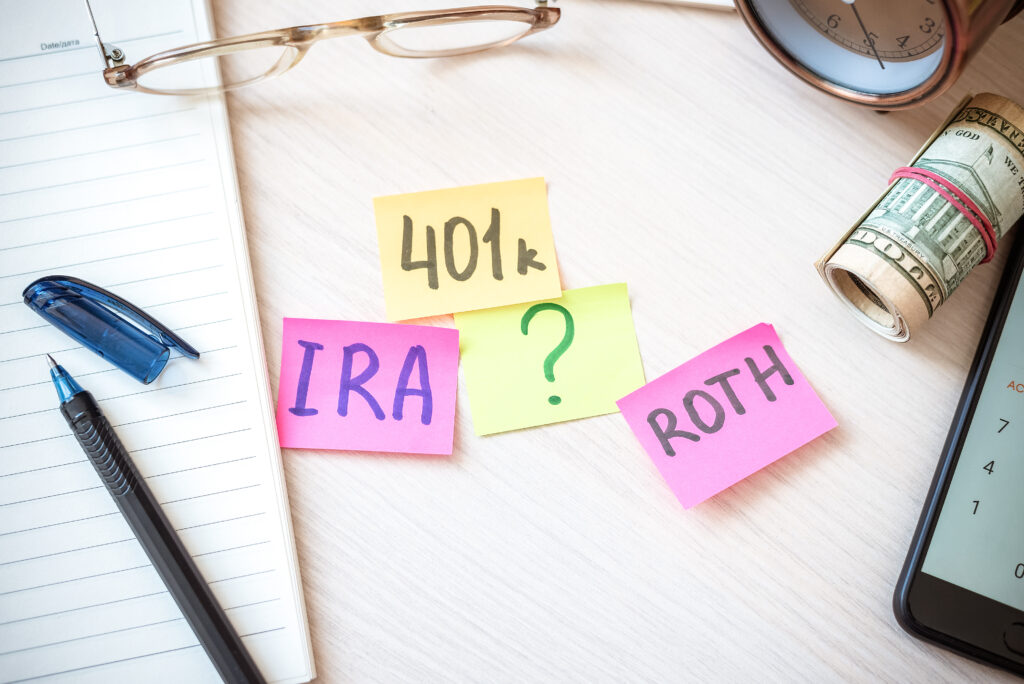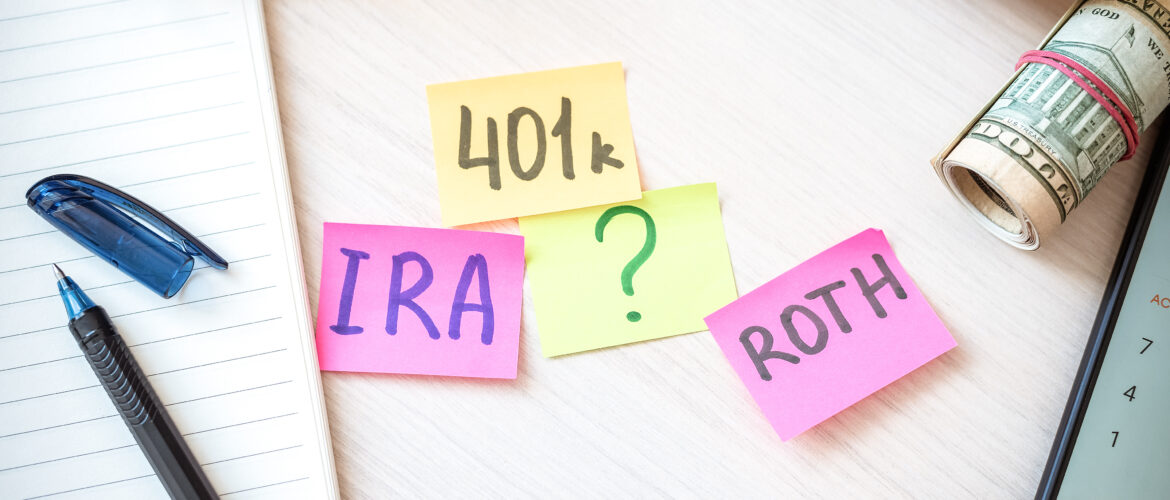
Planning for Your Future: Retirement and the Roth Conversion
As we dive into 2023, there are ongoing discussions around the fact that markets are continuing to be volatile. These periods of unpredictability can be nerve-wracking — but there are certain actions you can take now that may help.
To put it in perspective, here are a few things that money managers, those with their finger on the pulse, foresee happening:
- Continued anticipation of interest rate hikes may continue to drive a weaker economy and lead to slow growth.
- Geopolitical or global issues between the U.S. and China, as well as the war between Ukraine and Russia could continue to affect the economy.
- Increased reductions in the labor force within major tech corporations and other large companies may indicate a slower growth in revenue.
- A shift by money managers to a protective stance with larger ownership in bonds and defensive stocks.
- Expect 2023 to have an upside for bonds, defensive stocks, and emerging markets.
What can you do regarding your retirement planning?
According to Fidelity, “converting money in a traditional 401(k) or IRA to a Roth 401(k) or Roth IRA has long had many potential advantages. Of course, you need to pay taxes on the converted amount. But once the money is in a Roth IRA, you don’t pay taxes on qualified withdrawals, giving you more flexibility to manage your taxes in retirement and boost after-tax income. Plus, there are no required minimum distributions (RMDs) on Roth IRAs during the lifetime of the original owner, making them valuable vehicles for estate planning.”
Each year, a group of Generation Xers are turning 50, putting in perspective that retirement is on the horizon. This decade between 50 and 60 tends to be the peak of the highest earning years for full-time employees. Many of their kids are grown, living on their own or in college, and are preparing for their own futures. The onslaught of the ol’ empty nest then has parents thinking about themselves and their future plans. This may include putting together a spending strategy around retirement savings.
But as you consider retirement and your approach to spending your hard-earned savings, one major flag rears its head: taxes. So, it has you wondering, “What are my plans around paying taxes on my withdrawals?” Then you might think, “Aww, I can just open a Roth IRA.” But as you diligently do your research, you may learn that you have to be within a specific income range to contribute. If married filing together, your income needs to be less than $218,000 (or $153,000 for single households). Learning this, you may then be asking yourself, “What other options do I have?” Well, there is a solution: It is the Roth conversion.
How Do You Complete a Roth Conversion?
A Roth conversion allows you to move funds out of a traditional IRA into a Roth IRA. Making this choice simply means that you will have to pay taxes now on those funds that have been transferred to the Roth. Just remember, you can do one lump sum or a series of conversions leading up to and in retirement. A major benefit is that once the conversion is complete, those funds, along with the earnings, grow tax-free. Other benefits are you will no longer have to take required minimum distributions (RMDs) when you turn 72, and should a financial need arise, you may be able to withdraw your contributions tax-free.
Now, there’s another option to implementing a Roth conversion: The Roth option within your 401(k) plan. Yes, your current 401(k) plan may allow the capability for you to contribute after tax income toward the Roth. And, unlike the Roth IRA, there is no income limit. The other consideration is that you can’t contribute more than the 401(k) plan limits for employee contributions — this year it is $30,000, $22,500 plus the $7,500 catch up provision, for those over 50.
Now that we are well into a new year, you can reach out to both your CPA and financial planner to discuss your options surrounding what may be the best strategy for you and your family. After all, it will give you the comfort knowing that you have a plan and are working toward your plan. Did you know that 1 in 5 people spend more time planning their next vacation than making plans around their money? I get it, vacations get you excited, and it’s a more immediate gratification. But if you don’t understand your money and taxes, you can waste time and energy feeling financial anxiety about future expenditures. Instead, build out your team to help provide guidance so you can truly enjoy those life experiences without hesitation while simultaneously controlling your future money and taxes.
If anything in this article resonates with you and you need to add another smart woman to your team, don’t hesitate to reach out to schedule your 20-minute exploratory meeting.
Tags: Black CFP, Black Executive Women, Black Finance Blogger, Black Financial Advisor, Black Woman CFP, black woman financial advisor, estate planning, Gen X, Gen X Women, New Year, retirement planning, Roth conversion, Wealthy Women, Zaneilia Harris financial planner


